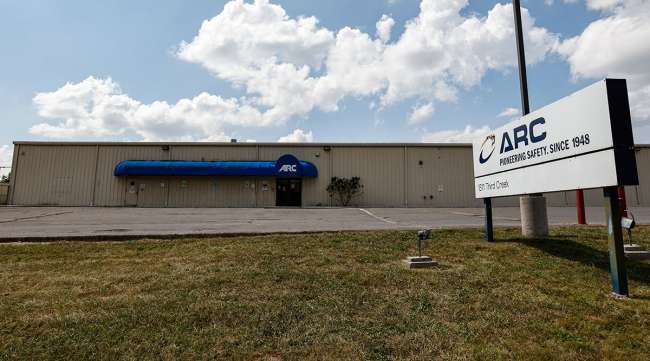NHTSA Retreats From Massive ARC Air Bag Recall

[Stay on top of transportation news: Get TTNews in your inbox.]
DETROIT — U.S. auto safety regulators have backed away from seeking a giant recall of nearly 50 million air bag inflators and will investigate further after the auto industry raised questions about whether all of the inflators are defective.
The Dec. 18 move by the National Highway Traffic Safety Administration is vastly different from a decision reiterated by the agency in July that the inflators made by ARC Automotive of Tennessee are defective, dangerous and should be recalled.
The agency has said inflators in about 49 million vehicles from 13 manufacturers are at risk of exploding and hurling shrapnel into drivers and passengers. They’re responsible for at least seven injuries and two deaths in the U.S. and Canada since 2009, and recalling all of them would have cost millions of dollars.
But in a document posted Dec. 18 in the Federal Register and dated Dec. 13, the agency said it considered comments on a decision from July seeking the recall. The auto industry pointed to technical and engineering differences between ARC inflators in vehicles made by different manufacturers. The comments also raised manufacturing-process variations at different plants that made the ARC inflators.
Lori Heino-Royer of Waabi discusses the latest developments, breakthroughs and key industry partnerships in autonomous trucking. Tune in above or by going to RoadSigns.ttnews.com.
RELATED: US Reports 28th Death From Exploding Takata Air Bag Inflators
“Given the potential relevance of these issues to the agency’s decision-making, including the appropriate scope of any recall, further investigation is warranted,” the agency said in the document.
A message was left Dec. 18 seeking comment from ARC, which is owned by Yinyi Group of China.
NHTSA said Dec. 18 that it carefully considered the comments on its decision to seek a recall of all the inflators and decided that more investigation is warranted.
The agency said in the coming weeks, it will send more information request letters to ARC, vehicle manufacturers and air bag-module manufacturing companies.
“NHTSA will evaluate the responses to these information requests along with all available information to determine how to proceed,” the agency’s memorandum said. “If appropriate, NHTSA will provide a further opportunity for public comment prior to considering whether to issue a final decision in this matter.”
The agency has been investigating ARC since 2015 after drivers-side inflators blew apart in a 2004 Kia in Canada and a 2002 Chrysler Town & Country minivan in the U.S., both injuring people.
In a supplemental decision in July, NHTSA said seven ARC inflators have ruptured in the field in the U.S., each showing evidence of insufficient welds or too much pressure in a canister designed to contain the explosion and fill the air bags in a crash.
In addition, the agency said 23 inflators have ruptured in testing with causes common to the inflators that blew apart in the field. Also, four inflators have ruptured outside the U.S., killing at least one person, the agency said.
Want more news? Listen to today's daily briefing above or go here for more info
“To be sure, the overwhelming majority of the subject inflators will not rupture upon deployment,” NHSTA wrote in July. “However, based on the evidence linking past ruptures to the same friction welding process, all of the subject inflators are at risk of rupturing.”
But several automakers argued in public comments that years of investigations by NHTSA did not establish a systemic design defect. Some said none of the millions of inflators in their vehicles have ruptured due to the cause pointed out by the agency.
NHTSA had said the only way to know which of the ARC-designed inflators will blow apart is for them to deploy in a crash. The federal motor vehicle safety act “does not allow such a defect to go unaddressed,” the agency said.
One person who died after an ARC inflator explosion was Marlene Beaudoin, a 40-year-old mother of 10 from Michigan’s Upper Peninsula. She was struck by metal fragments when her 2015 Chevrolet Traverse SUV was involved in a minor crash in 2021. Beaudoin and four of her sons had been on their way to get ice cream. The sons were not hurt.





